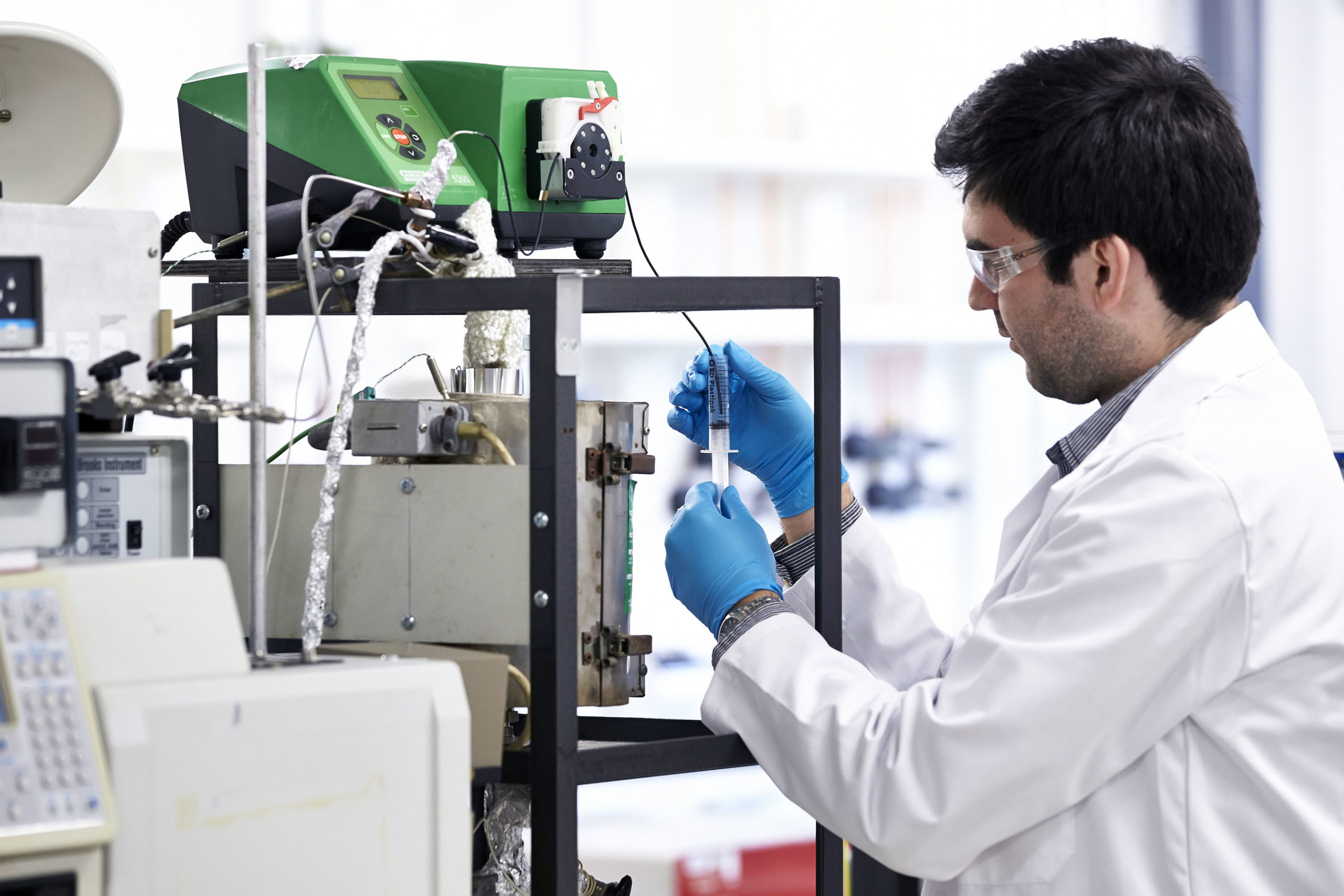Energy research at Aston University set to accelerate following £180m investment

Aston University is set to play a crucial role in the next step towards the transformation of the UK’s energy sector after the Government confirmed a £60m investment for the Energy Research Accelerator (ERA). The investment is backed by a further £120 million from the private sector and Midlands Innovation universities.
ERA is set to become a world-leading hub of energy talent, technology research, development and deployment, based on the internationally renowned academic expertise and industrial heritage of the Midlands. Industry investors include Blueprint, Cofely, Dearman Engines, Highview and Jaguar Land Rover.
The announcement is a milestone for Aston University who will now work in partnership with the five other leading UK universities forming the Midlands Innovation group – The University of Birmingham, The University of Leicester, Loughborough University, The University of Nottingham and The University of Warwick – and the British Geological Survey.
The funding will create new world-class facilities to meet the challenges of developing affordable low-carbon energy and technologies for greater energy efficiency. The initiative will bring together the best in energy research and build upon the Midlands’ extensive industrial base.
ERA’s research will be focused on the complementary Thermal (T-ERA), Integrated Systems (I-ERA) and Geo-Energy (G-ERA) research themes.
Aston University’s European Bioenergy Research Institute (EBRI) will lead the ‘5BIO scheme’. It will stimulate innovation and knowledge transfer between businesses, scientists and chemical engineers across renewable biomass, biorefining, bioenergy, biofuels and bio-products. EBRI’s current facilities include a demonstration power plant, thermal processors, and laboratories which allow companies to explore and develop practical bioenergy solutions. EBRI is already developing technologies for business that are capable of turning organic waste products such as sewage sludge, garden and crop waste into heat, power and electrical sources.
Gordon Waddington, ERA CEO, said: ““This announcement by the Government allows us to take the next step to accelerate the transformation of the UK energy sector and invest across the whole of the Midlands. ERA is putting the UK on the global map of energy innovation. The amount of private sector funding is a testament to the fact that this is a critical opportunity for growth and productivity in the UK.”
– Ends –
For further information, please contact Louise Ciaravella, University Communications at [email protected] or 0121 204 4637.
Notes to Editors
1. Read The Government’s full policy statement. The reference to ERA reads: “The government is also investing £60 million in the proposal by six universities across the Midlands for a new Energy Research Accelerator, a major project to develop the energy technologies of the future.”
2. The Energy Research Accelerator will tackle some of the biggest energy challenges facing the UK by transforming research and development in three critical areas of energy: Thermal, Integrated Systems and Geo-Energy. The core objectives of ERA are to make better use of primary resources, bring about smarter energy systems, reduce our dependence on importing energy, enhance energy security and resilience, and help achieve the UK’s carbon reduction targets.
3. ERA is a cross-disciplinary energy research hub integrated around a clear strategic focus, market relevant outputs and fast delivery of results to industry. It will develop highly skilled people, new products and services and create internationally relevant solutions to increase productivity, drive growth and create jobs for the region and wider UK.
4. ERA is focused around three themes of energy research, identified by the world class expertise at the founding universities in terms of the research and potential economic opportunities they can bring to the UK:
- Thermal Energy Accelerator (T-ERA): To lead the development and integration of thermal (heating and cooling) energy technologies and the global cold economy.
- Integrated Energy Systems Accelerator (I-ERA): To deliver integrated energy solutions addressing major energy use markets – buildings and transport – through manufacturing.
- Geo-Energy Systems Accelerator (G-ERA): Focusing on next generation gaseous related technologies including geo-energy, Carbon Capture and Storage (CCS) and energy storage, helping to decarbonise the energy and transport sectors.




